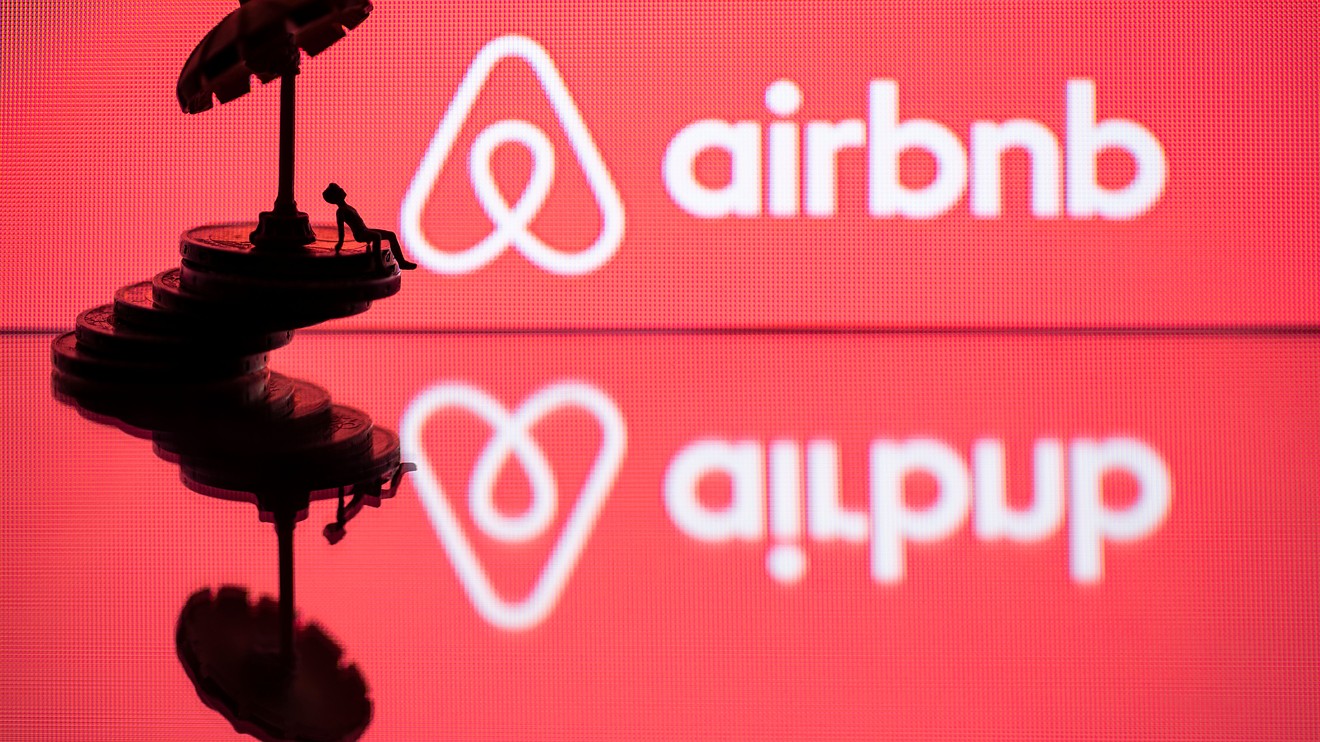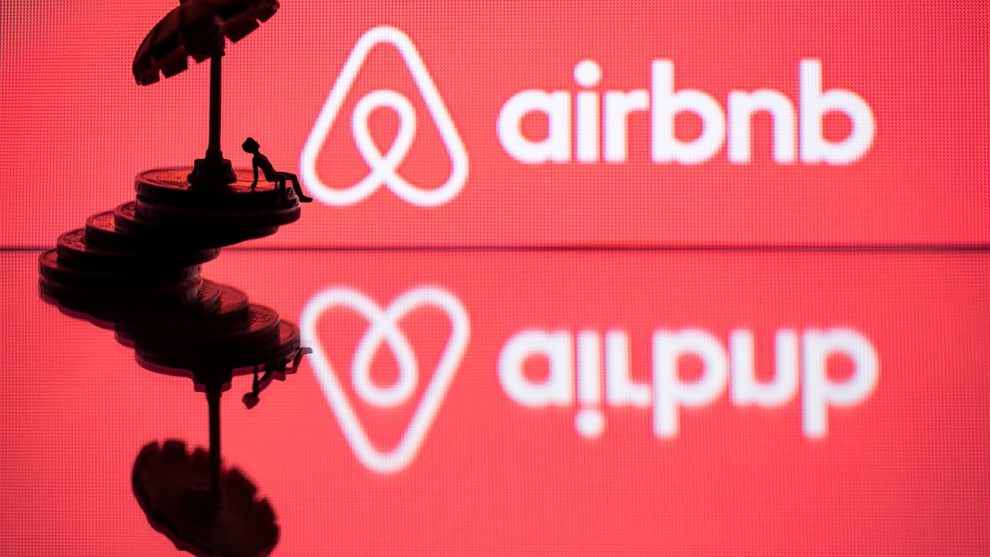
Ahead of its initial public offering, Airbnb said Wednesday it will verify all its listings.
“Starting now, verification of all seven million listings on Airbnb will commence,” CEO Brian Chesky wrote in a memo. “Homes will be verified for accuracy of the listing (including accuracy of photos, addresses, and listing details) and quality standards (including cleanliness, safety, and basic home amenities) and those that meet our high expectations will be clearly labeled.”
“Beginning on December 15, 2019, if upon checking into a listing it does not meet our accuracy standards, Airbnb will re-book the guest a new listing of equal or greater value, or they will get 100% of their money back,” he added. “Most hosts do a great job, but guests need to feel like Airbnb has their back, and we believe this commitment is a necessary step in giving guests peace of mind.”
Earlier this week, Chesky announced new directives aimed at rooting out unauthorized parties after a Halloween “party house” shooting in Orinda, Calif., resulted in five deaths. A woman rented a four-bedroom home after telling the owner that 12 of her family members with asthma needed refuge from wildfire smoke, a source told the Associated Press, and neighbors later contacted the homeowner about a party.
Authorities have not yet made arrests in the shooting that ensued in the crowd of about 100 people. Airbnb will expand manual screenings of “high-risk reservations” flagged by its risk-detection technology; launch a dedicated rapid-response team for “party houses”; and take “immediate action,” including removal, against guests who violate the new policies, Chesky tweeted TWTR, +0.55%
“Starting today, we are banning ‘party houses’ and we are redoubling our efforts to combat unauthorized parties and get rid of abusive host and guest conduct, including conduct that leads to the terrible events we saw in Orinda,” he wrote. “We must do better, and we will. This is unacceptable.”
The company banned the renter in question and removed the home listing from the platform, according to the Associated Press.
When asked to comment on the behaviors that most commonly result in a ban, an Airbnb spokesman directed MarketWatch to the company’s community standards regarding safety (for example, no harming yourself or others), security (no theft, extortion or fraud), fairness (no hate speech, discrimination or harassment), authenticity (no misrepresenting yourself or your space) and reliability (no renting out uninhabitable spaces or breaking your commitments).
The tragedy is a timely reminder that Airbnb hosts and guests are strangers, and there is always an element of risk involved when renting a home or allowing strangers into your home.
Discriminating against guests
Chesky tweeted in 2016 that the platform had permanently banned a host in Charlotte, N.C. for allegedly calling a prospective guest the N-word as he canceled her reservation. “This is the south darling,” he said, according to a screen shot posted to Twitter. Chesky called the incident “disturbing and unacceptable.”
A year later, California’s Department of Fair Employment and Housing announced that a former Airbnb host had agreed to apologize, pay $5,000 in damages and take an Asian-American studies college course after allegedly canceling a UCLA law student’s reservation on the basis of her Asian heritage a few months earlier.
In 2015, the company told ABC affiliate KTRK-TV that it had booted a Galveston woman from the platform — citing a “zero-tolerance” discrimination policy — after she allegedly kicked out a gay couple because of their sexuality.
“If the host improperly rejects guests on the basis of protected class, or uses language demonstrating that his or her actions were motivated by factors prohibited by this policy, Airbnb will take steps to enforce this policy, up to and including suspending the host from the platform,” the company says on a help-center page.
Airbnb also said in October 2018 that it would display a guest’s profile photo only after a host had accepted the booking request, rather than before, partly in response to concerns about discrimination over photos.
Spying on guests
Multiple stories of hidden cameras in Airbnb rentals have emerged in recent years. In one such instance in 2017, Airbnb confirmed the permanent ban of a host referenced in a viral tweet, which showed a secret camera installed in a bedroom.
“In ‘oh, that’s a thing now’ news, a colleague of mine thought it odd that there was a single ‘motion detector’ in his AirBNB in the bedroom and voila, it’s an IP camera connected to the web. (He left at 3am, reported, host is suspended, colleague got refund.),” Jason Scott of the website TextFiles tweeted.
A spokesman called such incidents “incredibly rare” in a statement at the time, noting that cameras in bathrooms and bedrooms are never permitted and that all other cameras “must be properly disclosed to guests ahead of time.”
Having a criminal record
Airbnb, which conducts background checks on U.S. members using public criminal records and sex-offender registries, says that “less serious” criminal convictions like marijuana possession won’t ever result in removal, according to a help page.
Crimes like felony burglary or felony larceny can lead to removal lasting 14 years post-conviction, and offenses like fraud or property damage can result in a seven-year removal. “Severe” crimes including murder, rape or terrorism “may result in removal for a longer period of time or even permanently.”
Criminal-justice reform advocates argue that such bans are too lengthy, and that they serve to punish people with criminal convictions after they have already served their time. Marlon Peterson, who was convicted on charges of first- and second-degree assault and attempted robbery for his role as a lookout in a 1999 armed robbery, wrote in a 2018 USA Today op-ed that he had been banned for life from Airbnb despite his “years of healing and loving work” as an activist.
“I can certainly understand the apprehension. If I were renting out a space, I would want to know everything about my tenant as well,” Peterson wrote in the paper, which confirmed his lifetime ban. “But I would also take into account how they’ve changed their lives. How long should people pay for mistakes of their past? When is enough enough?”
Expressing white nationalist views
The platform in 2017 confirmed to NBC29 in Charlottesville, Va., that it had canceled reservations for users who had booked accommodations in the area ahead of the “Unite the Right” white nationalist rally, which would ultimately result in the killing of Heather Heyer, an activist who attended to protest racism.
“When through our background-check processes or from input of our community we identify and determine that there are those who would be pursuing behavior on the platform that would be antithetical to the Airbnb Community Commitment, we seek to take appropriate action including, as in this case, removing them from the platform,” Airbnb said.
But a report this year suggested the platform has work to do. After Gizmodo reporters contacted Airbnb about dozens of listings booked during the weekend of a white-nationalist conference, the company reportedly “expressed alarm” and launched an internal investigation, eventually canceling some bookings and banning some users.
“We previously acted in advance of the horrific event in Charlottesville, we’ve now acted in advance of this conference in Tennessee, and if we become aware of similar information we won’t hesitate to do so again,” the company said at the time.
A disgruntled host gets a guest banned
Jackson Cunningham, 33, of Vancouver, was banned from Airbnb in 2017 without explanation. “This decision is irreversible and will affect any duplicated or future accounts,” a customer-service representative told Cunningham in an email reviewed by MarketWatch. “Please understand that we are not obligated to provide an explanation for the action taken against your account.”
Cunningham, the owner of a cat-furniture business who describes himself as an early evangelist of Airbnb, initially thought his suspension was a mistake before the company confirmed it. After racking his brain for potential reasons, he zeroed in on a recent “awkward incident” with an Airbnb host: The host later left a critical review of Cunningham and his girlfriend, and Cunningham, unable to respond through the Airbnb app, left a review on the host’s Google GOOG, +0.19% GOOGL, +0.16% listing GOOGL, +0.16%.
Cunningham’s July 2018 Medium post about his experience went viral — and soon afterward, Airbnb responded to apologize and reinstate his account. “You were removed after we received a report alleging inappropriate behavior in an Airbnb listing. Upon further review, we determined that removal was not required based on this report. We hope you give us another try and again, we apologize for any inconvenience,” a representative said in an email seen by MarketWatch.
But Cunningham, who believes the company only acted “because the story got so much attention,” says he hasn’t used his account since its reactivation. He believes the company sees its customers as “data points” rather than individuals. “If somebody is showing in their policies that they really don’t care about the individual, I think it’s just a really dangerous thing,” he said.
“He was removed by mistake,” the Airbnb spokesman told MarketWatch when asked about Cunningham’s case. “We reinstated his account and apologized to him for the inconvenience.”
div > iframe { width: 100% !important; min-width: 300px; max-width: 800px; } ]]>











Add Comment